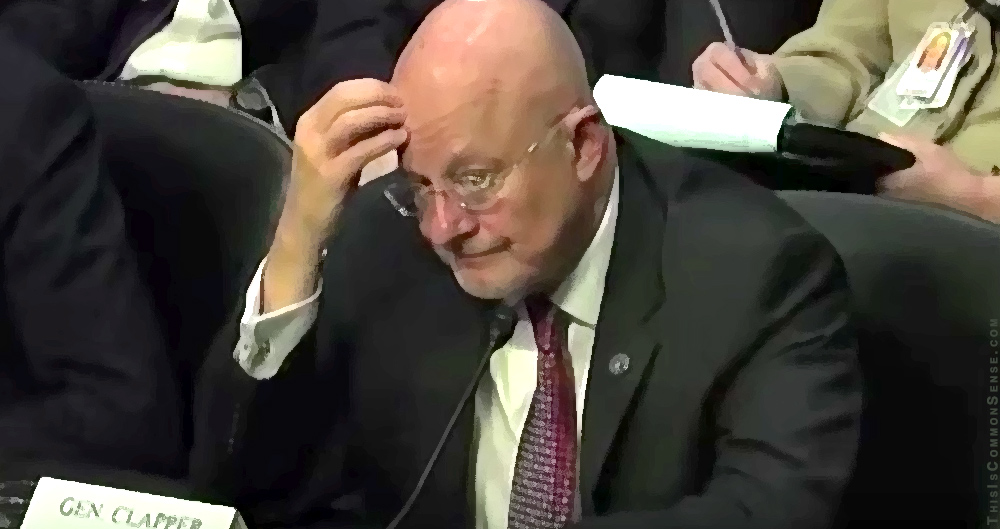Tomorrow, I turn 50. Time flies when you’re having fun.
For the last 30-plus years — my entire adult life — I’ve worked in politics. That might not seem like much fun. Politics is a constant struggle, a slog. But working for freedom — in one crusade or another — has been both fulfilling and fun.
Maybe it’s because, as a friend once accused, I’m a pathological optimist. Maybe it’s a whole lot more than that.
I’ve worked through nights, bleary-eyed, peering at voter registration lists. I’ve circulated petitions in 100-degree heat and freezing temperatures. I’ve been vilified in the press, as well as lionized. I’ve been both hounded and praised. I’ve been imprisoned, and threatened with more of the same.
What was I thinking?
I guess I thought, and indeed still think, that we are called upon to do what we believe is right — come what may. Freedom isn’t free. As much as I love words, actions speak much louder.
It’s been hard sometimes. I was in prison for five and a half months when my oldest was only a year old. I was there for refusing to register for the draft.
What was I thinking?
In the words of then-presidential candidate Ronald Reagan, I thought: “The draft or draft registration destroys the very values our society is committed to defending.” I could not stand idly by while those cherished values were destroyed, nor certainly be any party to it.
My re-education in federal custody fortunately didn’t take. And the road I took has made all the difference.
For instance, I met Ron Paul when, as a slightly younger congressman, he testified at my trial. Three years later, in 1988, I nominated him to run for president on the Libertarian Party ticket.
At a meeting in April of that year, the task of putting Congressman Paul on the ballot for president was handed to me. The next morning I was awakened by a phone call at home — at 6:00 am. And for the next six months the phone never stopped ringing.
I remember my wife calling me at the office to tell me our new home phone number — and urging me not to give it out to people! She’s a lot smarter than I am.
Working with wonderful people across the country, we successfully placed Ron on the ballot in 47 states and the District of Columbia. And Guam. Believe me, it took a lot of hours, daylight and late night.
What was I thinking?
I was thinking that given a choice, people would choose greater freedom, limited government and personal responsibility. We didn’t win, of course. But we weren’t through trying.
Howie Rich and Eric O’Keefe noticed my work on the petition drives and offered me a job running the Tax Accountability Amendment in Illinois. Half a million voters signed petitions to put the measure on the ballot. Then, at 77 percent in the polls, the Illinois Supreme Court took it off the ballot. (The same thing happened again four years later with a term limits petition.)
But, suddenly, freedom was breaking out around the world. The Berlin Wall came down. Czechs poured into the streets. Estonians were singing. We watched with inspiration and then horror as students rallied for weeks in Tiananmen Square only to ultimately be crushed under tanks that rolled over them. Their dream was our dream; it was universal.
The end of the Cold War allowed Americans to cast a full glance at city hall, at the state capitol, at Washington, D.C. We didn’t like what we saw.
Along came term limits.
In 1992, I was hired to run U.S. Term Limits. We were able to help activists in 14 states get on the ballot — the most states to ever vote on a single issue on a single day. All 14 states passed term limits, including my home state of Arkansas.
The issue continued to win at the ballot box in the states and in hundreds of cities and counties — from Wyoming to New York City. Politicians sued. Speaker of the House Tom Foley was one.
In 1994, Republicans swept to a majority in the U.S. House for the first time in 40 years, in no small part due to their embrace of term limitation. One of the biggest upsets was Foley, the only Speaker defeated for re-election since the Civil War, a victim of his own lawsuit to overturn his state’s voters.
And term limits — a case from Arkansas, not Foley’s — went to the Supreme Court. Unfortunately, in a narrow 5 to 4 decision, the court struck down Arkansas’s term limits law, and by implication laws enacted in 22 other states.
What was I thinking?
On the steps of the Supreme Court, I told reporters:
All over Washington today, the politicians and the power brokers are happy. You can hear the sound of champagne corks popping. I have a simple message to them. Drink up; you’re outnumbered.
Term limits went nowhere in Congress, of course. There were a few principled supporters, but most wanted a career of perks and power. It’s very seductive.
I was on the wrong side of an 80/20 issue. I was with the 80 percent of Americans for term limits.
What an amazing situation: Our representatives refuse to do what 80 percent of the people want. In essence, they refuse to give back the power we’ve given to them.
The issue won’t go away. At every Tea Party, one sees the homemade two-word signs: Term Limits.
The only negative result of term limits sweeping those states with initiative and referendum has been the backlash. Legislators and their favored special interests have launched a concerted attack on the initiative process for enabling the people to do such a thing in the first place.
What was I thinking?
The initiative process is the greatest protection we citizens have from a government gone wild.
Regular readers of Common Sense know my more recent work in helping citizens across the country petition to put dozens of initiatives on the ballot to protect homes and small businesses from being taken through eminent domain abuse and other initiatives to enact state spending limits.
In the spirit of “no good deed goes unpunished” and in the cesspool that has become our politics, Oklahoma Attorney General Drew Edmondson indicted three of us, The Oklahoma Three, for “conspiracy to defraud the state” over a 2006 initiative there.
What was I thinking?
The Oklahoma powers-that-be were scared. And they did not want us taking any limits on government spending to a public vote.
And perhaps, for a moment or two, I may have thought “I’m getting too old for this.”
We were innocent of the charge and we fought back. After more than a year and a half with a possible ten-year prison term hanging over our heads, the charges were dismissed. The AG had campaigned in the press that we were guilty, but he had repeatedly blocked our case from going before a judge for a preliminary hearing to determine if there was enough evidence to even go to a trial.
No such hearing was ever completed. Meanwhile, the state’s petition law was struck down as unconstitutional in federal court.
The AG thought he could threaten us into submission. He had offered my co-defendant Susan Johnson a deal: plead guilty and all she’d get would be a small slap on the wrist.
Like so many unsung patriots in this country, she told him to stuff it.
What was she thinking?
All that is necessary for the triumph of good is for the majority of people — who are indeed good at heart — to stand up and be counted. The people are not the problem. They are the solution to the problem.
When government becomes Goliath, the initiative is the people’s slingshot.
Times are tough. Even a little scary. But I’ve never had more hope for the future. Together, I’m convinced we can leave our kids and grandkids an insurance policy. Not one that pays money when we’re gone, but something they’ll need even more:
Freedom.
The key to protecting and restoring freedom is to give the intrinsic decency and the common sense of the American people a chance to prevail. That’s what the initiative and referendum process is all about: an opportunity to place some measure of common sense on the public agenda, and when needed, to check the power of the high and mighty.
As I look back on my five decades, I’m thinking how proud and how lucky I am to serve as president of Citizens in Charge and Citizens in Charge Foundation, the only national organizations committed to protecting the right of citizens to initiative and referendum.
Last year, thanks to your support, we worked in 17 states protecting the rights of over 137 million Americans. This year, we’re already helping local leaders in 14 states and we’re engaged in eight lawsuits to overturn unconstitutional restrictions on citizen petitions. And there’s more to come.
Many times through the years I’ve asked you to make a sacrifice to support our mutual cause. Your generosity has made the difference. Again today, I ask you to help support the work of Citizens in Charge Foundation with a contribution.
Don’t donate $50 to Citizens in Charge Foundation just because I’m turning 50. If that were the only motivation, I’d want you to give $49 or $39 or $21. I’d feel younger.
Give whatever you can afford — $50 or $5 or $500 — because your freedom and mine, as well as freedom for our loved ones, is worth every penny.
We’ll put it to good use in mobilizing citizens, organizing coalitions, putting grassroots pressure on elected officials, defending the rights of citizens in court and in the court of public opinion.
My oldest emailed me to say, “This is a pretty big deal birthday.” I told her that I’ll only be one day older.
And each new day I’ll be happy, having fun, defending what we hold dear, working with great people like you to empower the common sense of the American people, to put citizens in charge.
This is Common Sense. I’m still, for one day more, 49-year old Paul Jacob.

P.S. Please contribute today to our 2010 national campaign to Save the Initiative. And thank you for all you’ve done to stand up for liberty and justice.
P.P.S. When you make a financial gift, your spouse, your friends, your neighbors and co-workers may ask you: Times are tough — what were you thinking?
So tell them. Freedom needs not only your support, but theirs.









